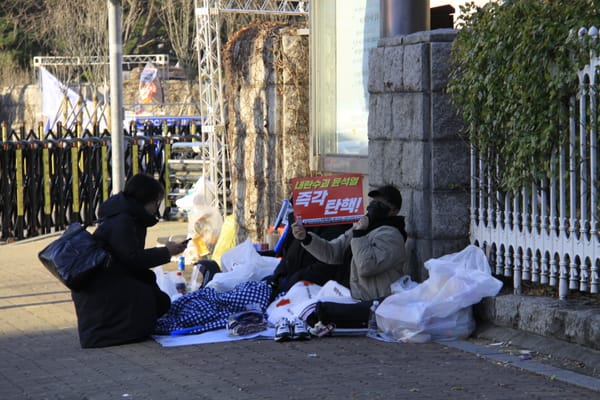Breaking News Backgrounder #7 – What the return of the Taliban means for Asia
The Taliban are back, retaking Kabul 20 years after they were forced out after the 9/11 terrorist attacks. As someone who entered College that year, studied through the war on terror, Afghanistan has been constantly in the background of my career.
Here’s the problem: the vast majority of mainstream reporting on what’s happening in Afghanistan is focused on the role of the United States military, President Joe Biden, and who is to blame for the Taliban’s sudden rise. There are also now countless retrospectives on “what went wrong” or sob-pieces about what this means for women and other marginalized communities, nearly all written by people with little actual connection to the country.
Missing, almost entirely, are local, regional and Asian perspectives on the Taliban’s reconquest. How are locals actually dealing with this? Will this event impact South Asia and Central Asia, two regions for which Afghanistan sits squarely in the center off? And what does this mean for the region’s economy?
Breaking News Backgrounders are normally subscriber-only issues of Asia Undercovered, focused on giving readers contextual understanding of a breaking news story beyond the headlines and simplistic, pundit takes. I’ve made this issue free, but please consider subscribing to support our efforts to highlight quality local reporting.
The Failure of the western-backed, Democratic Government
While the US withdrawal may have been the backbreaker, many Afghans are putting equal, if not greater, blame on the failure of the country’s democratically elected leadership, in particular President Ashraf Ghani, who is being called out for his hypocrisy.
Ghani was President for seven years, and was just reelected in September last year in a low-turnout election. According to this piece by Frud Bezhan, his “abrasive and authoritarian leadership style... alienated key power brokers, contributed to the rapid collapse of Afghanistan’s security forces and the unraveling of the government.” Read more about Ghani and his role in what happened (Gandhara)
As you probably know, as Kabul was about to fall, Ghani fled without notice, not even releasing a statement, which has left many Afghans angry – a sentiment I noticed much more than anger at the US departure (Ali Latifi, Al Jazeera).
Pakistan, India, and China
These three countries, along with Iran, have the most to gain and lose in Afghanistan. And they face key decisions, such as whether or not to recognize the new government, and how to deal with it, and the Islamist threat it presents.
Pakistan shares a long, contested border with Afghanistan, and many (especially in Afghanistan) believe that the Pakistani military played a key role in the Taliban’s rise, and is pleased to see the fall of the democratically-elected, India-leaning government, In this in-depth piece for Carnegie, Aqil Shah details the key issues between these two neighbors, the Taliban-Pakistani relationship, and the role of the so-called Pakistani Taliban.
At the same time, the speed at which the Taliban reconquered the country was shocking to many in Pakistan. Fahd Husain lays out five initiatives that he believes his country should undertake without delay, ranging from a convening of the national security council to a ban on ministers issuing statements (Dawn).
Afghanistan also has a small border with China (actually, occupied East Turkestan/Xinjiang) and Beijing seems to be giving the Taliban tacit approval. This piece by Mercy Kuo for The Diplomat goes into how China may seek to expand the Belt and Road Initiative, as this is an opportunity to expand its influence in another South Asian nation.
There’s a dark side too – Afghanistan likely hosts some Uyghurs in exile. China, in meetings with the Taliban, sought assurances that the Islamist regime would not give safe haven to Uyghurs, and, as Reid Standish reports for RFERL, may even seek to force-ably repatriate Uyghurs.
Here’s something you don’t often see on US cable news – a segment with an Indian, Pakistani, and Taiwanese journalist focusing on how countries in the region are reacting to the Taliban seizing power (DW News).
What this means for Asia
The entire region will be impacted. Despite its small size, at least compared to its neighbors, Afghanistan is crucial to the future of South Asia’s economy. In fact, the rise of the Taliban can be connected to its failure to grow its GDP, despite so much economic and humanitarian assistance, argues Asad Ejaz Butt for Dawn.
Another issue that has not gotten much attention are the Afghan refugees around the world, many stuck in limbo in countries like Malaysia and Indonesia, who haven’t been hospitable.
And one thing to remember – Afghanistan has been a pawn in geopolitical battles for centuries, dating back to attempts by the British and Russians to expand influence during the colonial era. Peace has been evasive for decades. What locals want is something simple yet elusive – peace, respect for human rights, and justice. Is that really asking too much? (Tolo News)
Stay informed on Afghanistan
To keep up with what’s happening in the country, I recommend Tolo News and their female anchors, who continue to report.
Chances are, like the Myanmar coup, or the Hong Kong protests, as time passes, attention will shift away from Afghanistan. Not here – Asia Undercovered will continue to share stories on the region, and key events, long after western media has moved on.
Best,
Nithin Coca
PS. Help us combat inaccurate, pundit-driven coverage – share this issue with your friends and colleagues so that they can understand what’s really happening in Afghanistan.
Asia Undercovered: In-depth round-ups and analysis of the news, events, trends and people changing Asia, but not getting enough attention in the US media.



